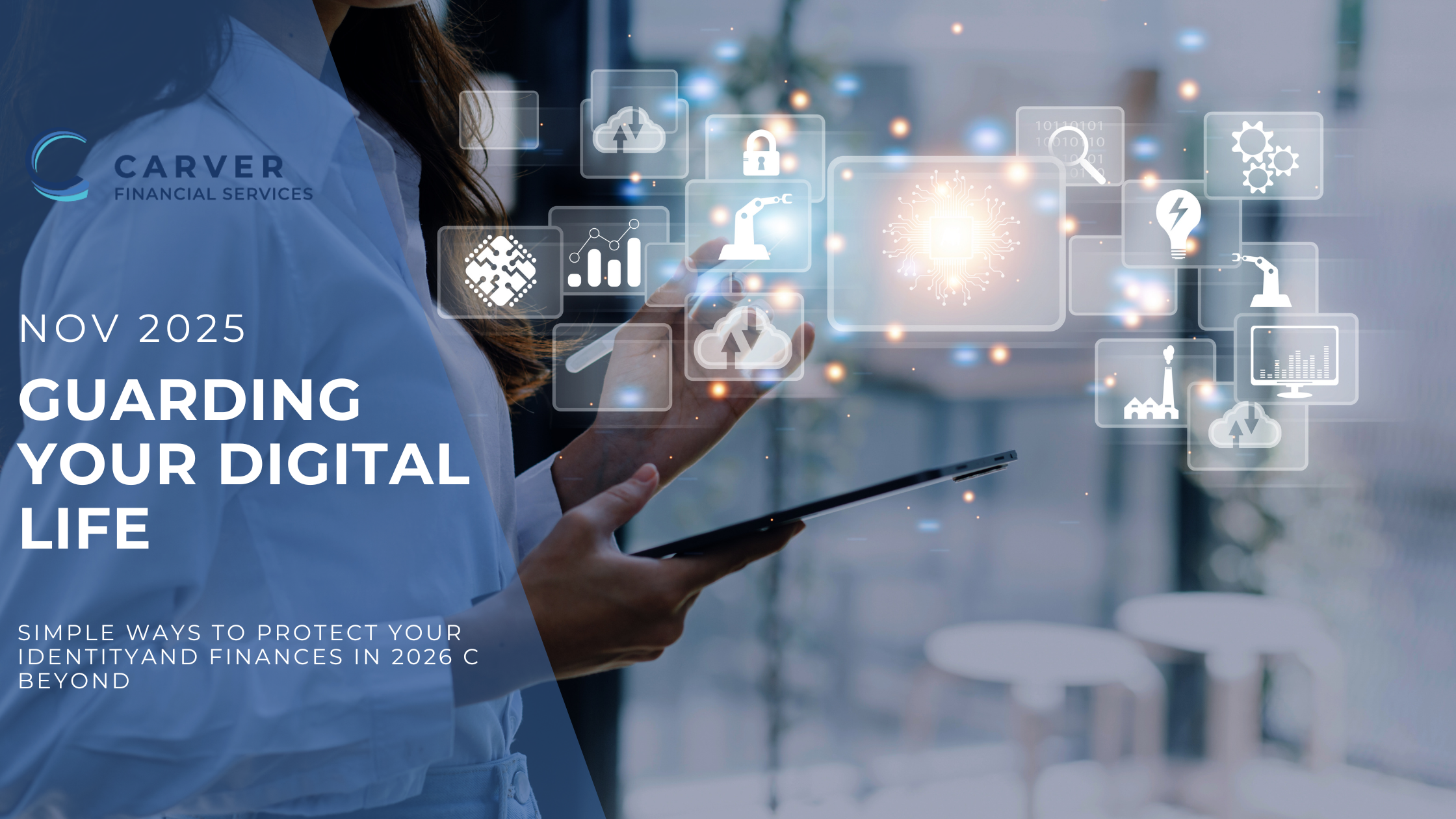
Technology has made our lives more connected, convenient, and efficient than ever before — but it’s also created new risks. Cybercriminals are getting smarter, and scams more sophisticated. Protecting your identity, privacy, and financial information has become a critical part of managing your overall well-being.
According to Experian, the Federal Trade Commission received more than 1.1 million reports of identity theft in 2024, a 9.5% increase from the prior year. These crimes led to an estimated $12.7 billion in losses, with someone in the U.S. falling victim to identity theft every few seconds.
And this isn’t a new trend — fraud has been on the rise for years. In fact, a study by the Centre for Counter Fraud Studies found that individuals aged 65–74 are 54 times more likely to be victims of online scams than physical robberies. In 2020 alone, consumers reported losing over $3.3 billion to fraud, up from $1.8 billion the year before.
Understanding the Threats:
While advanced technology plays a role, many cybercrimes start with social engineering — psychological manipulation that convinces victims to share personal details or transfer money. These scams often look or sound legitimate:
- An email claiming your bank account was compromised and needs “verification.”
- A phone call pretending your grandchild is in trouble and needs bail
- A pop-up message saying your computer is infected and urging you to “call tech ”
- Or even a message saying you’ve “won” a prize that just requires your banking
These scams are successful because they trigger fear or excitement — emotions that lead to hasty decisions. The best defense is awareness and caution.
Simple Steps to Protect Yourself
You don’t need to be an IT expert to stay safe online. A few simple habits can make a huge difference:
- Protect your Use strong, unique passwords for each account and enable multi-factor authentication wherever possible.
- Be cautious with emails and links. Don’t click links or download attachments from unknown Look carefully at web addresses — “Faceboook.com” with an extra “o” might be a scam.
- Don’t share personal Never give out Social Security numbers, account details, or passwords in response to unsolicited emails, calls, or texts.
- Pause before Scammers often create urgency to make you react quickly. If something feels off, it probably is.
- Consider additional Services like LifeLock™ or Identity Guard® can alert you if someone tries to open credit in your name.
- Freeze your This prevents new accounts from being opened in your name without authorization. You can request a freeze from Equifax (1-888-298-0045), Experian (1-888-397-3742), and TransUnion (1-888-909-8872).
Taking these steps now can save you time, stress, and money later.
Our Commitment to You
At Carver Financial Services and Raymond James, protecting your information is not just a promise — it’s part of who we are.
We employ multiple layers of protection, including next-generation firewalls, intrusion detection systems, and 24/7 monitoring to stay ahead of emerging threats.
Raymond James also offers a written guarantee: clients are reimbursed for any losses in their Raymond James accounts caused by unauthorized access through no fault of their own — a policy that makes them the only Wall Street firm to do so.
Join Us for Our Upcoming Cybersecurity Resource Breakfast
We’re dedicated not only to protecting you, but also to empowering you with knowledge. Join us on Saturday, January 10, 2026, for a special Resource Breakfast: Protect Your Identity, featuring top experts Jason Mayor (Deputy Chief Information Security Officer, Raymond James) and Brett Colon (Chief Information Security Officer, American Century Investments).
You’ll learn:
- The latest trends in cyber and identity threats
- How Raymond James and Carver Financial protect your information
- What to do if your data is ever compromised
- Practical steps to safeguard your personal and financial life
Date: January 10, 2026
Time: 8:00 – 9:00 a.m. Breakfast & Registration | 9:00 – 10:00 a.m. Presentation
Bring your friends, family, or colleagues — anyone who could benefit from learning how to stay safe in a digital world.
Final Thoughts
Cyber threats may be evolving, but so are our defenses — and with the right awareness, you can stay one step ahead.
At Carver Financial Services, we’re here to help protect what matters most: your assets, your privacy, and your peace of mind.
Together, we can ensure that technology works for you, not against you.
You can contact us at randy.carver@raymondjames.com or (440) 974-0808.
Any opinions are those of Randy Carver and not necessarily those of Raymond James. This material is being provided for information purposes only and is not a complete description, nor is it a recommendation. The information has been obtained from sources considered to be reliable, but we do not guarantee that the foregoing material is accurate or complete.















